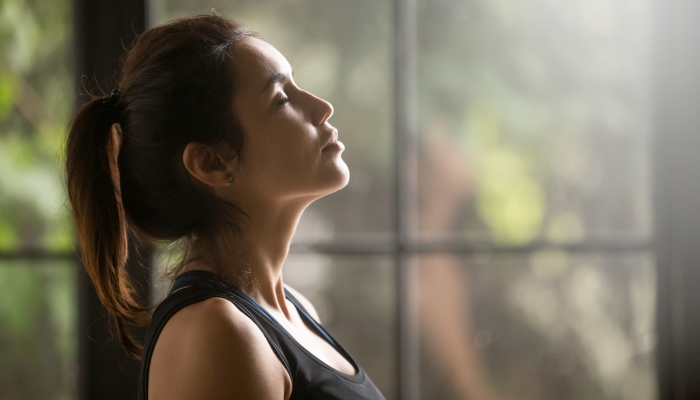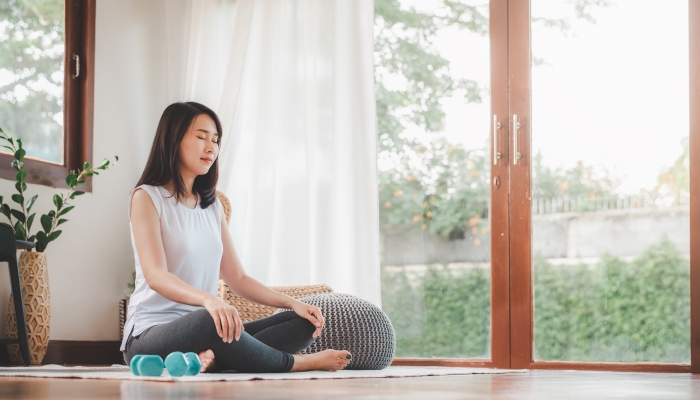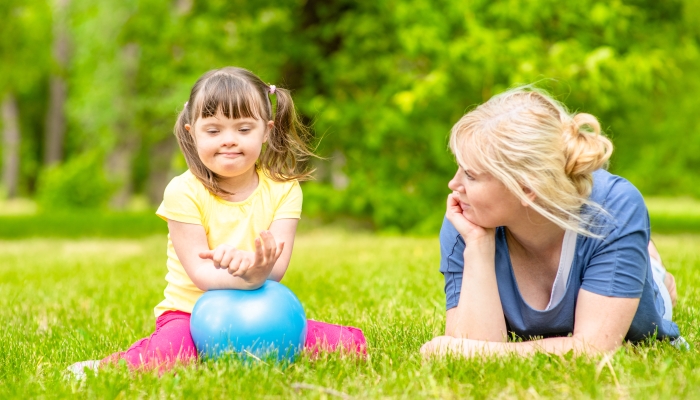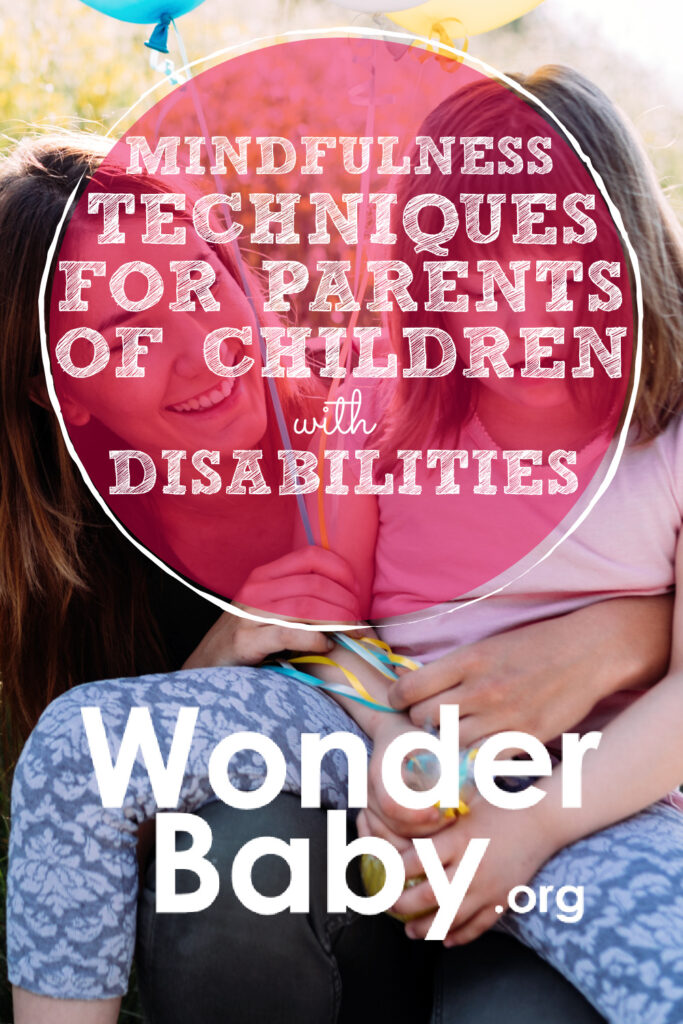7 Mindfulness Techniques for Parents of Children With Disabilities

This post may contain affiliate links; please see our terms of use for details.
- Mindfulness activities for special needs parents can aid in mental health, emotional regulation, and promotion of self-care.
- Examples of mindfulness techniques include breathing exercises, meditation, and gratitude journaling.
- Practicing mindfulness can reduce stress, improve physical health, and positively impact daily life.
- Mindfulness-based stress reduction combines body awareness and meditation to help cultivate awareness of being in the present.
Many parents will tell you one of the biggest challenges with self-care is finding the time for it. Between washing dishes, bathtime, making dinner, and all the hats you wear, it sometimes leaves little time for yourself.
Mindfulness for special needs parents is an important stress reliever that can aid in your overall well-being. Remember, addressing parent mental health is as important as taking care of your children.
While it’s crucial to reduce stress, unrealistic expectations of mindfulness can negatively impact how we deal with life’s challenges. It’s not always easy to stay calm in stressful situations, but with several helpful techniques, you’ll be on your way to mindfulness.
1. Breathing Exercises

Mindfulness breathing exercises can help you manage stress and stay grounded by focusing on slow, intentional breaths that calm your body and mind.
Whether your child has autism spectrum disorder or another disability, or you have typically developing children, practicing breathing exercises for stress reduction can significantly impact your mental health.
The National Health Service11. Breathing exercises for stress. NHS UK. 2022. https://www.nhs.uk/mental-health/self-help/guides-tools-and-activities/breathing-exercises-for-stress (NHS) suggests this simple breathing technique:
- Breathe in through your nose and out through your mouth.
- Try letting your breath flow deeply into your belly without forcing it.
- Breathe in gently and regularly, counting steadily to 5 if that helps.
- Then, let it flow out gently.
- Keep doing this for at least 5 minutes.
You can practice breathing exercises when you wake up or schedule a time during the day. The vital part is for parents to address their own needs.
2. Meditation Practices

Meditation is one of the best things you can do for your mental health and mindfulness. According to the Mayo Clinic22. Meditation: A simple, fast way to reduce stress. Mayo Clinic. 2023. https://www.mayoclinic.org/tests-procedures/meditation/in-depth/meditation/art-20045858, meditation has the following benefits:
- Builds skills to manage stress
- Reduces negative feelings
- Lowers resting blood pressure
- Helps you sleep better
- Makes you more self-aware
- Focuses on the present
- Releases upsetting thoughts
You can start in short intervals to help create a regular meditation practice, especially so you don’t feel overwhelmed. Chronic stress can significantly impact your well-being, so it’s vital to address it.
Here are three ways to meditate:
- Guided meditation: Listen to a teacher or guide’s voice to meditate and form mental images that help you relax. (YouTube, podcasts, and apps are great resources for guided meditations.)
- Mantra meditation: Repeat a calming word, phrase, or thought to help you unwind.
- Mindfulness meditation: Focus on one thing (such as your breathing) to help you be more aware of the present.
3. Mindful Observation

Paying attention to your child without judgment or distraction and actively listening is a great way to practice mindful observation. In addition, listening to their tone, words, and emotions can help foster a deeper connection and understanding with your child.
Parents of children with special needs can practice mindful observation with activities that encourage present-moment awareness, like taking a nature walk. In addition, remember to take joy in the small things in life, noticing the beauty and wonder you can find even in the simplest things.
In a study published by the University of Washington33. Eckart, K.. Practicing mindfulness benefits parents and children, UW study says. University of Washington News. 2018. https://www.washington.edu/news/2018/09/25/practicing-mindfulness-benefits-parents-and-children-uw-study-says/#:~:text=A%20University%20of%20Washington%20study,children’s%20behavior%20improved%2C%20as%20well., parents practicing mindfulness improved their children’s social skills and their children displayed fewer negative behaviors.
4. Gratitude Journaling

Self-help skills like gratitude journaling help you reflect on the positive aspects of your life and your child’s progress. You can aim to write down one or two things you feel grateful for daily, no matter how small they seem.
Gratitude plays a significant role in enhancing mental health and perspective. For example, you might say “I get to” instead of “I have to.” While it’s easier said than done sometimes, it’s interesting how changing perspective impacts thoughts and feelings.
One of my favorite gratitude journals is the Good Days Start With Gratitude: A 52-Week Guide to Cultivate An Attitude of Gratitude. You can also get a regular notebook; remember, it doesn’t have to be fancy, just a place to write down your thoughts.
- Press, Pretty Simple (Author)
- English (Publication Language)
- 70 Pages – 09/16/2017 (Publication Date) – CreateSpace Independent Publishing Platform (Publisher)
5. Body Scans for Tension Release

A body scan is a mindfulness practice in which you mentally scan your body from head to toe, noticing every ache, sensation, or tension point. The idea is to acknowledge your physical feelings without passing judgment.
One of the most important aspects of stress management is physical awareness, which aids in mindfulness. Research shows that sleep and quality of life improve44. O’Bryan, A.. How to Perform Body Scan Meditation: 3 Best Scripts. PositivePsychology.com. 2023. https://positivepsychology.com/body-scan-meditation/#:~:text=Researchers%20found%20that%20outcomes%20on,of%20quality%20of%20life%20improved. with the addition of body scan meditation.
6. Mindful Listening and Communication
Mindful and active listening can significantly impact difficult situations. While brushing off your child when life is busy is easy, they need to know we will listen.
Here are a few tips from the Centers for Disease Control and Prevention55. Active Listening. Centers for Disease Control and Prevention. 2019. https://www.cdc.gov/parents/essentials/toddlersandpreschoolers/communication/activelistening.html (CDC) on active listening:
- Give your child your full attention.
- Make eye contact and stop doing other things.
- Get down to your child’s eye level.
- Reflect on what your child is saying to ensure you understand.
Mindful listening can enhance your relationship with family members while improving communication and compassion. When you show your children that you are an open ear, they are more willing to talk to you in the future.
Remember, mindfulness training doesn’t happen overnight, so ensure you allow yourself grace as you develop the skills of mindful listening and communication, even if it means one parent at a time.
7. Setting Mindful Intentions

Setting mindful intentions can be incredibly beneficial for special needs parents as they navigate the unique challenges and joys of parenting children with special needs.
Here’s a look at tips for setting mindful intentions to help create a positive impact on your life:
- Practice self-compassion. Treat yourself with understanding, kindness, and self-compassion, particularly in times of self-doubt, exhaustion, and stress.
- Cultivate presence. Intentionally be fully present for your child while embracing every moment with patience, acceptance, and openness.
- Embrace acceptance. Embrace your child’s unique challenges, abilities, and journey while cultivating a mindset of adaptability and openness.
- Practice non-judgment. Use self-compassion and non-judgment as you approach your child, yourself, and your parenting journey, avoiding comparing yourself to others.
- Celebrate progress. Celebrate small or big progress, recognizing your inner strength.
When parents set mindful intentions, they can cultivate greater compassion, resilience, and presence in their parenting journey while fostering deep connections with their children.
The Connection Between Mindfulness and Parenting

Self-care for parents with special needs children can positively impact life satisfaction and benefit the whole family. You’ll likely notice an influence on your well-being and relationship with your children.
The following benefits are expected when parents practice mindfulness:
- Fewer behavior problems
- Better conflict resolution
- Parent-child bonding
- Present moment awareness
- Decreased anxiety and depression
- Stress-free home life
Overall, mindful parenting positively impacts the parenting experience by promoting emotional balance, presence, and an authentic connection between you and your child.
When you add mindfulness to your parenting approach, you can develop greater harmony, joy, and fulfillment in your relationship with your child, regardless of developmental disabilities.
Overcoming Challenges to Mindfulness Practices

It’s a great idea to contact therapists, support groups, or other parents who understand what you’re going through. Sometimes, sharing your feelings and thoughts with others provides encouragement, validation, and practical advice.
For example, if you suffer from depression, it may be beneficial to talk to someone about your feelings. While mindfulness helps, so is acknowledging when you need additional help, especially if you experience anxiety and depression.
As a parent, it’s vital we address our needs and emotions despite the challenges we face.
FAQs
Is it possible to practice mindfulness training together with my child who has a disability?
Practicing mindfulness training with your child is possible, and it’s also incredibly beneficial. For example, children with autism can benefit from mindfulness training since it promotes sensory awareness, creative expression, and guided imagery.
Remember to tailor your mindfulness practices to your child’s unique needs and preferences, allowing patience and flexibility. Overcoming burnout as a special needs parent is important, but remember to allow yourself grace.
Are group mindfulness sessions beneficial for parents of children with disabilities, or is individual practice more effective?
Mindfulness sessions can positively impact both the parents and the individual, but it’s essential to understand the effectiveness can vary depending on preferences, circumstances, and needs. For example, group mindful sessions allow parents to exchange strategies, insights, and resources for coping with the demands of being a special needs parent.
However, individual sessions are tailored to personal needs and help focus on personal growth. Some parents may benefit from group and individual sessions, while others develop a preference.
References
- Breathing exercises for stress. NHS UK. (2022, August). https://www.nhs.uk/mental-health/self-help/guides-tools-and-activities/breathing-exercises-for-stress
- Meditation: A simple, fast way to reduce stress. Mayo Clinic. (2023, December 14). https://www.mayoclinic.org/tests-procedures/meditation/in-depth/meditation/art-20045858
- Eckart, K. (2018, September 25). Practicing mindfulness benefits parents and children, UW study says. University of Washington News. https://www.washington.edu/news/2018/09/25/practicing-mindfulness-benefits-parents-and-children-uw-study-says/#:~:text=A%20University%20of%20Washington%20study,children’s%20behavior%20improved%2C%20as%20well.
- O’Bryan, A. (2023, September 22). How to Perform Body Scan Meditation: 3 Best Scripts. PositivePsychology.com. https://positivepsychology.com/body-scan-meditation/#:~:text=Researchers%20found%20that%20outcomes%20on,of%20quality%20of%20life%20improved.
- Active Listening. Centers for Disease Control and Prevention. (2019, November 5). https://www.cdc.gov/parents/essentials/toddlersandpreschoolers/communication/activelistening.html

Related Posts

Eye Conditions and Syndromes, Visual Impairment
Neuralink Announces Plans to Restore Sight to the Blind with Brain Chip
Elon Musk’s company Neuralink has announced plans to begin human trials of its new “Blindsight” brain chip by the end of 2025.

Special Needs
5 Spring Cleaning Tips for Families of Children with Disabilities
Spring cleaning is an opportunity to create a more accessible, organized, and supportive space for your child with disabilities. Declutter, deep clean, and refresh!

Visual Impairment
The Gift of Understanding: How a Young Child Helps His Blind Father Navigate Life
When a parent is blind, it’s natural for people to wonder how their sighted child will adapt. Will they struggle to understand their parent’s needs? Will they feel burdened by...
